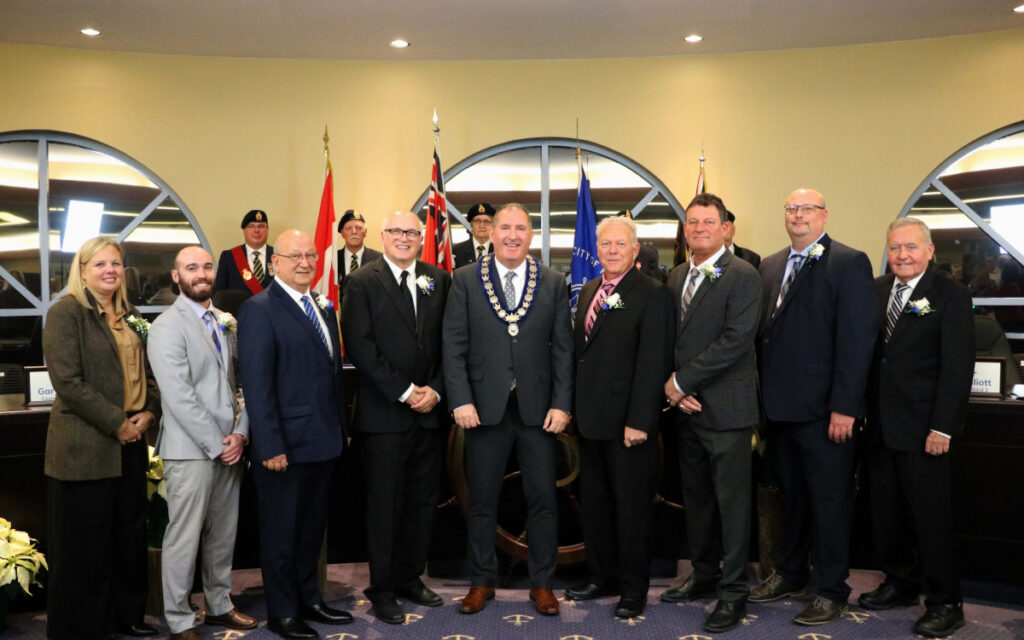
The development charges study will be given formal approval at the Oct. 22 meeting of city council. Pictured: Members of Port Colborne City Council. Photo Credit: City of Port Colborne.
The population growth being experienced throughout Niagara is leading the region’s municipalities to pursue ambitious development projects to meet the needs of its residents. Port Colborne is no exception. However, things are about to get a lot more expensive for developers.
Last week, Port Colborne City Council conducted a statutory public meeting regarding the city development charges study. Once it is officially passed, in October 2024, the amount that the municipality will charge developers to help it reclaim the cost of infrastructure is set to double, and then some, as rates are set for the next decade.
The rates in urban areas, for single-family homes, are expected to increase from $11,419 to $30,529. The cost of water and wastewater services, which are slated to increase from $5,281 to $17,266, is being stated as the central contributing factor for the hike.
Even though the numbers are extremely high, Byron Tan, a spokesperson for Watson & Associates, the consulting firm that completed the development charges study, explained that the current rates, which were set in 2019, were not indexed in 2024 dollars. He said that if this had been the case, the current rate of $11,419 would be more in line with $17,000.
The charges are calculated through a specialized process. It begins with adding together all of the spending that the city anticipates assuming in the next ten years. The amount that is not explicitly connected to development but is still projected to be accrued during this respective timeframe, is deducted. In addition to water and wastewater, legitimate expenses for development charges also include public works, library services, fire services, roads, as well as parks and growth studies.
Once these numbers have been accounted for, expenditures that will benefit existing residents are also deducted. The estimate of the development’s benefit to the city beyond the period specified in the development charges study are deducted and are then paid following the publication of the new development charges.
Upon completing all the necessary calculations outlined from the study, the proposed development charges would see the city collect $26,853,339 for water and wastewater and $22,054,991 for city-wide services. The total amount would be $48,908,330.
The views of city officials were complex. Port Colborne Mayor Bill Steele emphasized that significant waterworks upgrades would be needed, whether the employment lands on the east side of the Welland Canal were being developed, noting that the water mains are turning 60 years old. If they were to collapse, Steele argued, the eastern side of the city would be without service.
At the same time, Councillor Mark Bagu said he recognized that the increase in charges is mainly due to water and wastewater issues, as well as the fact that there is a need to cross the canal to serve employments lands on the east side. He was subsequently skeptical, however, about whether this charge should be adapted to developments at other locations across the municipality.
The total population for the City of Port Colborne is projected to grow by 18 per cent between now and 2036, from 20,397 to 24,255. To meet the housing demand, 627 apartment units, 550 multi-unit dwellings and more than 800 single family homes are expected to be built.
It is expected that the development charges study will be given formal approval at the Oct. 22 meeting of city council.

Nick Redekop completed his Honours Bachelor of Arts Degree in Labour Studies at Brock University. He has previously served in municipal and federal politics. In his free time, Nick enjoys following sports, taking part in outdoor activities, and reading biographies. Nick resides in Niagara Falls






